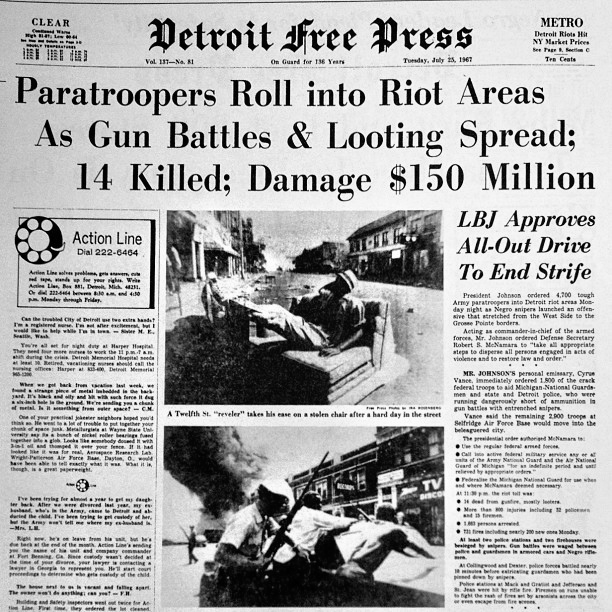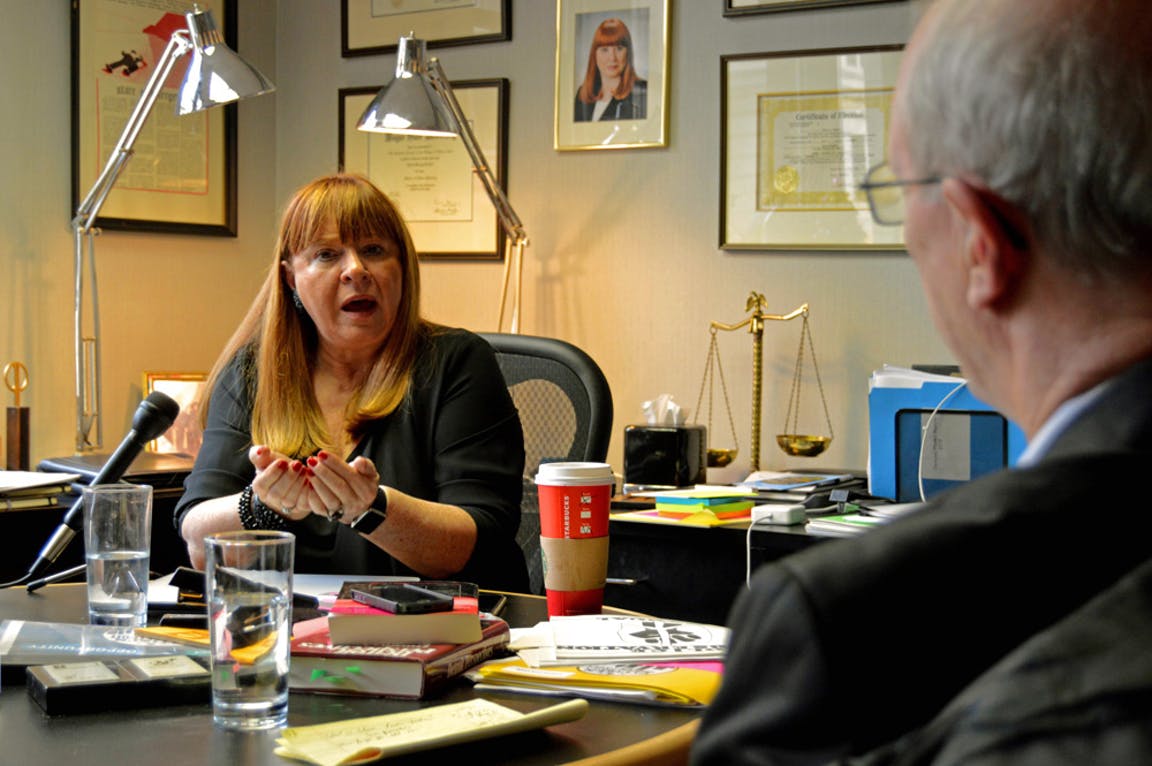
How the Detroit Journalism Cooperative expands the reach of ethnic media
Ali Harb is a journalist with The Arab American News, a member of the Detroit Journalism Cooperative, which is supported by Knight Foundation to chronicle Detroit’s recovery from bankruptcy and its ongoing renewal.
For three years, nonprofit media outlets — including New Michigan Media, the coalition of the leading ethnic publications in the Detroit area — have been involved in a cooperative project that has created synergy to amplify the impact of the partners’ investigative journalism.
The Detroit Journalism Cooperative, funded by the Ford Foundation and Knight Foundation, has empowered participating journalists to pursue hard-hitting reporting.
As a reporter at The Arab American News, I have experienced the influence of the project first hand.
At The Arab American News, our motto is “Telling your stories.” Our mission is to paint an accurate picture of the community. Arab and Muslim Americans have continually suffered from the perpetuation of stereotypes in various media outlets, and the rhetoric of the election campaign this year has contributed to the demonization of immigrants more generally across large segments of American society.
The Arab American News works to counter this sort of misinformation. And while our team works tirelessly to push back against misconceptions about Arab and Muslim communities, we sometimes struggle to reach the audience that really needs to hear the truth.
Arab-Americans, our newspaper’s primary readership, know that immigrants are not freeloaders. They know that refugees go through a rigorous screening process and are not a threat to national security. Community members are fully aware that they contribute their share — and more — to society. So when we write these stories, we often find ourselves preaching to the choir.
The Detroit Journalism Cooperative presented ethnic publications in Michigan with a rare opportunity to take our stories to a broader audience — readers beyond our own ethnic communities, who can learn about our issues and our lives.

Cooperating with outlets such as Detroit Public TV, WDET (Detroit public radio), Michigan Radio and Bridge Magazine, and sharing our stories on the Detroit Journalism Cooperative website, has allowed us to greatly extend our reach.
Expanding our readership, however, is not the only positive outcome of the collaboration. The cooperative has allowed us to interact personally and professionally with fellow journalists in Detroit. The exchange of ideas, which often goes beyond topics covered by the cooperative, helps make all of us culturally and journalistically better informed. And sharing contacts, for example, broadens our collective bank of sources.
The project has been an enriching experience. The help and guidance of veteran journalists from the cooperative’s partners has helped me grow as a journalist. In turn, I have given my input, where it is valuable, especially on Arab-American and immigrant matters.
At a time when welcoming refugees became a politically contested issue, The Arab American News wrote an article to tell the stories of Iraqis who fled the war in their homeland to start a new life in the United States in the early 1990s.
The story, part of the cooperative’s chapter on poverty, did not focus on the political rhetoric. We talked about hardships and success stories of refugees and of the agencies that worked with them, highlighting the unfolding human struggle.
As was the case with the Iraqi immigrant story for us, the initiative has helped all the partners delve deeper into the issues. We do not only talk about the who, when and where. There is an emphasis as well on the how and the why. Two questions have emerged as drivers for our reporting: What can we learn from this situation? And if there is a problem, what are the solutions?
The project has emboldened all of us to tackle sensitive, complex issues.
In the fourth chapter of the Intersection, two New Michigan Media outlets discussed race relations between different ethnic groups in Detroit. The Arab American News wrote a lengthy piece on the state of relations between Arab-Americans and African-Americans. We examined the relationship socially, politically and economically.
We spoke to heads of organizations, community leaders, activists and academics to paint a portrait of Arab-black relations in metro Detroit. At a time when Black Lives Matter protests have brought to the forefront African-Americans’ struggles, we discussed local Arabs’ attitude toward the push for civil rights, from the 1967 unrest in Detroit to today. We also asked about the parallels that may exist between the challenges facing both communities. The story addressed segregation, as we asked sources for their ideas on solutions to improve the relationship, which has often been marred by mistrust.
The Jewish News wrote a similar story about Jewish-black relations, highlighting the difficulties between the two communities early in the civil rights movement. These are uncomfortable, often difficult conversations that the Detroit Journalism Cooperative journalists have engaged in, and the results have been important insights into our communities.
The Detroit Journalism Cooperative experiment can be a model to follow. Collaboration between media outlets, backed by foundation support, has allowed a new kind of cooperative journalism to flourish, has helped minority and non-minority media outlets to do better work, and may well be the best sign for the future of journalism.
Hayg Oshagan, founder and director of New Michigan Media, contributed to this report. Follow the work of the Detroit Journalism Cooperative at detroitjournalism.org, and on Twitter @DJCnews.
-
Journalism / Article
-
Journalism / Article
Recent Content
-
Journalismarticle ·
-
Journalismarticle ·
-
Journalismarticle ·




